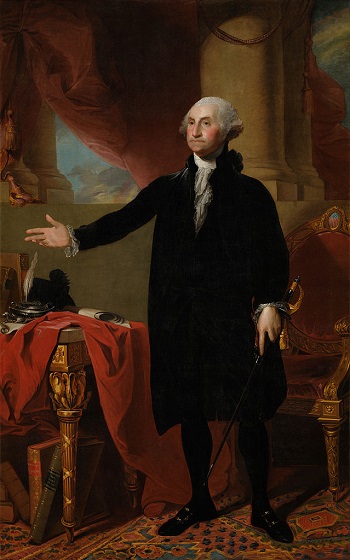
The "Lansdowne Portrait" of George Washington by Gilbert Stuart, 1796
|
The Revolutionary Era, 1760-1830 Historians of the Revolutionary era have come a long way since focusing exclusively on the Founding Fathers, military battles, and the making of the U.S. party system. This readings course often juxtaposes classic older interpretations with new ones, permitting us to explore how the field remains in constant movement. To enhance our understanding of how these scholars have used scant sources in innovative ways to construct their interpretations, we will also occasionally read original documents such as American loyalists' testimonies, an early American novel about courtship, and an unpublished political treatise by a man with limited education, all of which will enhance our views of the scholarship. We explore some of the most crucial questions debated by historians of the revolutionary era during the past fifty years, such as: Was the Revolution radical? Were the Founders' ideas about liberty undermined by their inattention to greater social equality? Is it more important to scrutinize the new political ideas held by social elites and political leaders, or those developed by such political others as women, African Americans, the working poor, and Native Americans? Do the years of the early republic -- those thirty years after the conclusion of the war -- reveal more about the United States' struggles with the notion of freedom and liberty than the buildup to and execution of the war? |



